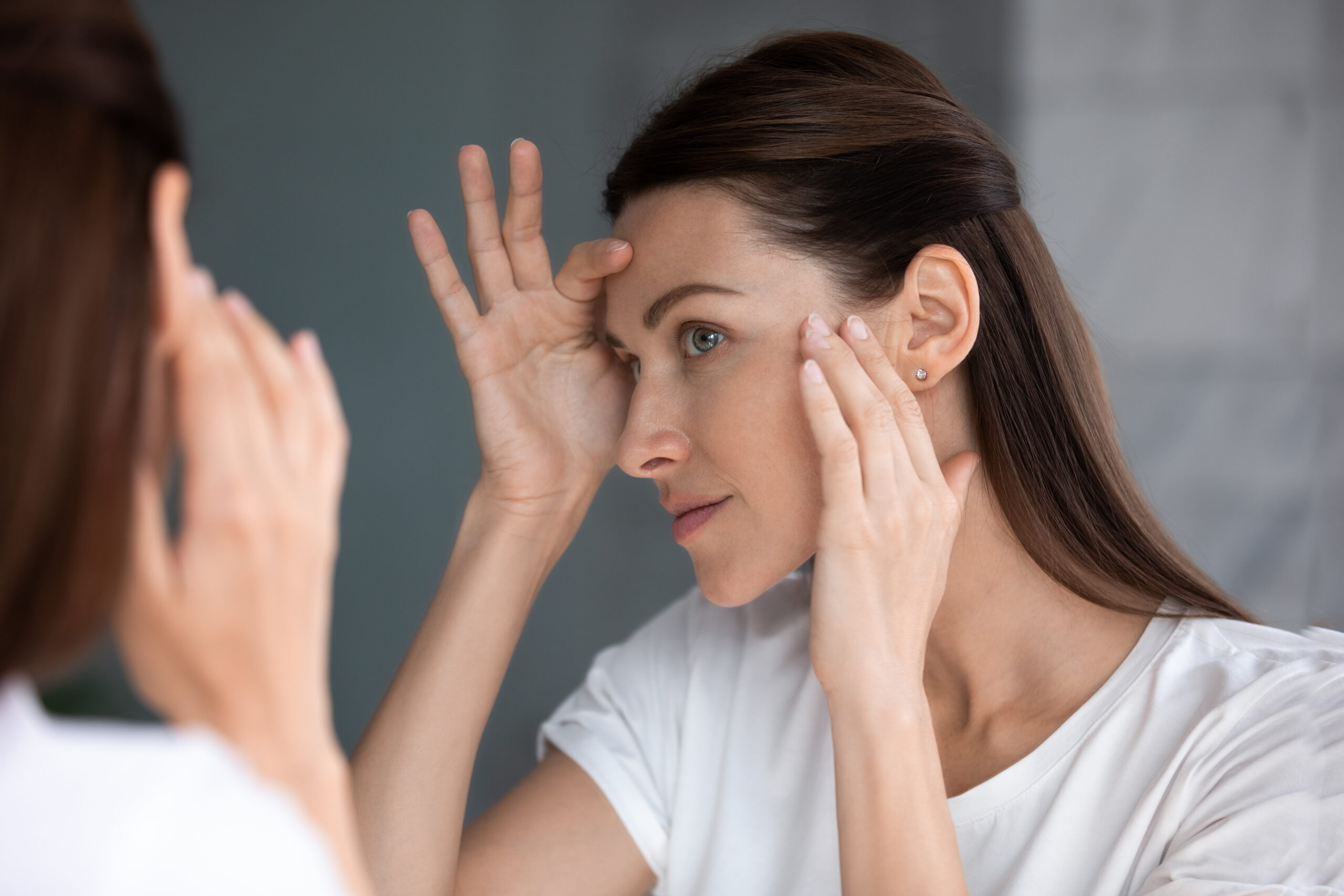Transepidermal water loss and the skin.
Transepidermal water loss (TEWL) refers to the process of water evaporation from the skin’s surface through the outermost layer, the epidermis. It is a natural occurrence that helps regulate body temperature and maintain skin hydration. However, excessive TEWL can lead to skin dryness, dehydration, and compromised skin barrier function. It is commonly influenced by factors such as environmental conditions, humidity levels, and specific skin conditions.
The appearance of the skin surface can vary based on various factors such as overall health, skincare routine, weather conditions, and potential skin conditions. Here are a few possibilities of how the skin surface can look:
- Clear and healthy: If you maintain a good skincare routine, your skin may appear clear, smooth, and evenly toned. It will be free from blemishes, acne, or any visible skin conditions.
- Dry or dehydrated: If your skin lacks moisture or if you are exposed to dry weather, your skin may appear rough, flaky, and feel tight. This can be managed by using a moisturizer and staying hydrated.
- Oily or greasy: Excessive production of oil (sebum) can cause the skin to have a shiny or greasy appearance. This can be managed by using oil-control products and ensuring proper cleansing.
- Sensitive or irritated: In some cases, the skin may appear red, inflamed, or feel itchy due to allergic reactions, eczema, or other skin sensitivities. It is important to avoid triggers, use gentle skincare products, and consult a healthcare professional if needed.
- Acne-prone: If you have acne, the skin surface may have visible pimples, blackheads, or whiteheads. It is important to establish a consistent skincare routine, cleanse regularly, and seek professional advice if needed.
It is worth noting that these are general possibilities, and individual variations exist. If you have concerns about your skin, it is recommended to book a skin consultation with one of our skincare specialists for personalised advice.
Transepidermal water loss (TEWL) refers to the loss of water from the skin through the outermost layer, known as the epidermis. Managing TEWL involves maintaining adequate skin hydration and strengthening the skin barrier.
Here are some ways to treat TEWL:
- Moisturise the skin: Regularly apply moisturisers or emollients to maintain skin hydration. Look for products with ingredients like hyaluronic acid, glycerin, shea butter, or ceramides, as these can help retain moisture in the skin.
- Avoid hot showers and excessive bathing: Hot water and prolonged bathing can strip the skin of its natural oils, leading to increased TEWL. Opt for lukewarm showers and limit bathing time to minimise water loss from the skin.
- Use gentle cleansers: Harsh soaps or cleansers can disrupt the skin barrier, thus increasing TEWL. Choose mild, fragrance-free, and hydrating cleansers that won’t further dry out the skin.
- Protect the skin from environmental factors: Exposure to environmental elements like cold weather, dry air, or wind can contribute to TEWL. Apply a layer of moisturiser and use protective clothing, such as gloves or scarves, to shield the skin from these conditions.
- Incorporate humectants: Humectants are substances that attract water from the environment into the skin. Adding products with humectant ingredients like urea, lactic acid, or glycolic acid can help improve skin hydration and reduce TEWL.
- Hydrate from within: Drink plenty of water and maintain a well-balanced diet to keep the body hydrated. Proper hydration from within can also benefit the skin’s moisture levels.
- Consider using occlusives: Occlusive agents create a barrier on the skin’s surface, reducing TEWL. Ingredients such as petrolatum, silicone derivatives, or mineral oil can be found in occlusive products like ointments or balms.
- Protect against UV radiation: Sun exposure can damage the skin barrier and increase TEWL. Apply a broad-spectrum sunscreen with at least SPF 30 and reapply every two hours, especially when spending time outdoors.
If the symptoms of TEWL persist or worsen, it is recommended to consult a professional for a thorough evaluation and personalised treatment plan.
Book a skin consultation and let us help you achieve your skin goals.




